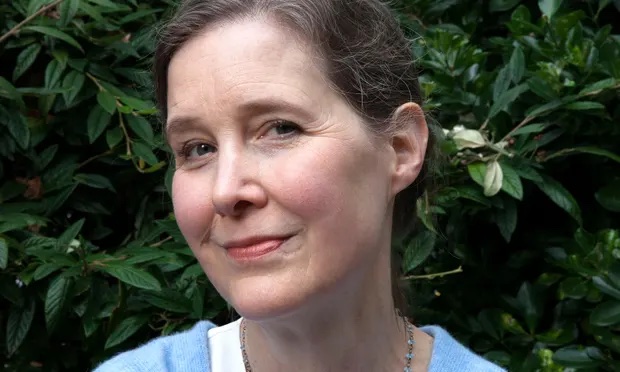– a reckoning with loss

At 57, the novelist Ann Patchett is already preparing for death. She isn’t terminally ill, and her decision isn’t as morbid as it sounds at first. She intends from now on to travel light, to empty her house in Nashville of the residues of adulthood: the boxes of clothes and dishes and jewellery that she has accumulated over five decades of living, things that she now believes prevented her from “thinking about what was coming and the beauty that was here now”.
Call it a pandemic house clearance, if you will, for she first had the idea of sorting out her drawers and closets following the death of a friend’s father last year. It took Patchett’s friend the entire summer to tidy up her father’s house for an estate sale: one man living alone had left behind too much. Patchett thought about the boxes in her own basement, all the gifts and possessions she had forgotten about over the years. “I wonder if we could just pretend to move,” she asked her husband: “I could have said: ‘I wonder if we could just pretend to die?’”
Delve deeper into the essays in These Precious Days and you will find that death is more than a pretense. A typical Patchett piece is a eulogy, suitably warm and affectionate, respectful to those who have died, or are about to die. There is her policeman father, who could do a hundred pull-ups in his 70s, but succumbed to Parkinson’s in under two years. There is her nurse mother, who looked so young that people assumed she was Patchett’s sister (and towards the end, Patchett would insist that she was). There is Tom Hanks’s deceased assistant, Sooki Raphael, protagonist of the title essay that went viral a few months ago when it was published by Harper’s, who had gone to Nashville for her chemotherapy and ended up staying with Patchett during the lockdown.
Each time Patchett begins a new novel, she says she is overcome by the fear of dying before finishing the book. But it is in her nonfiction that she has more visibly reckoned with loss, whether it is Truth and Beauty, her memoir of her friendship with the late poet Lucy Grealy, or the pieces in her 2013 essay collection, This Is the Story of a Happy Marriage, about being a caregiver to her grandmother. Why speak of the dead? For Patchett, it’s a tool for living, a salutary reminder of that “beauty that was here now”. You can seldom intuit conflict or ambivalence in her sentences, regardless of the subject; instead they convey a well-adjusted curiosity, mostly about her friends and family. What Patchett lacks in obsession and poetic depth, she makes up for with her raconteuring energy. In the best of these essays – Flight Plan, about her husband’s passion for flying airplanes, and How to Practice, the one about cleaning out her closets – uncomfortable truths are papered over with disarming wit. About her husband she asserts at one point that he is “honest about everything – which should not be confused with being thoughtful about everything”.
The story of becoming a writer is another recurring theme. Patchett’s father would read early drafts of her novels, give her notes, carefully save her publicity materials and reviews. But well after she had been published, he still believed writing was her hobby and not her job: “Having someone who believed in my failure more than my success kept me alert.” Patchett has good advice for younger writers on attitude (“give up on the idea of approval”), on writing v editing (“if you try to do both things at the same time, nothing will be done”), on publishing a book (“never hesitate to rewrite jacket copy or ask to see ad layouts”), and even on the distribution and sale of the printed book, since she is famously the co-owner of an indie bookstore in Nashville. When she was 30, a male author told her that to become “a real writer” one must have children. “I told him I didn’t have children,” Patchett writes. “What I didn’t tell him was that I would never have children, and that I had known this for a very long time.”In an essay on the American writer Eudora Welty, Patchett says that the usually anthologised favourites “fall short of representing the darkness and depth of her work”. I wondered about the remark as I read Patchett’s own essays. Were the decisions on which ones to keep and which to leave out pondered over enough? There are the inevitable repetitions, as with any corpus of pieces originally written for newspapers and magazines; but sometimes the padding conceals the pearls. A more careful selection, for instance, might have let Flight Plan alone sum up Patchett’s rapport with her husband, and left the two other essays on their relationship out.
There are plenty of cringey moments. By buying a stove for a homeless man, Patchett’s friend is apparently sweeping “down the walls of oppression”. She can’t help but talk up her acquaintances on the page – a “bombshell best friend” here, a “force of nature, force of life” there. And does Patchett honestly expect us to believe that Snoopy, the dog from the Peanuts comic strip, was her only role model as a writer? Yet I found myself ignoring the missteps, the saccharine detours, because they stem from the same impulse that enables the more engaging passages: the wish to let the heart “remain open to everyone, everyone, all the time”.
Complete Article ↪HERE↩!
